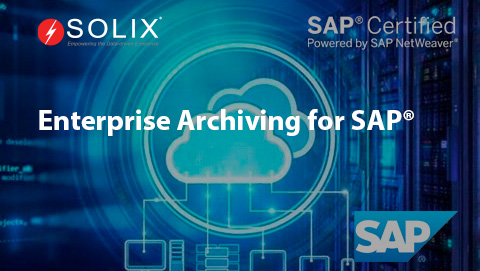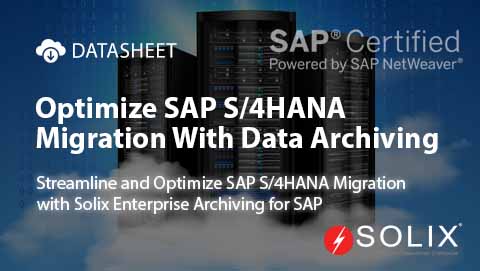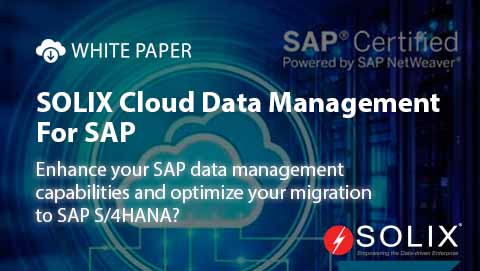
sap or erp system
When businesses want to streamline their operations, they often find themselves asking, Whats the difference between an SAP system and an ERP system The answer lies in understanding how these systems fit into the broader landscape of organizational management. An ERP (Enterprise Resource Planning) system integrates various business processes into one comprehensive framework, while SAP (Systems, Applications, and Products) is a specific type of ERP software popular worldwide.
In my experience working with different businesses, the distinction often becomes clearer through real-world applications. Imagine a mid-sized manufacturing company grappling with disparate data sources. By integrating a robust ERP systemsuch as SAPthey can harmonize their operations, streamline data processing, and enhance decision-making. This insight doesnt just stem from theory; its rooted in the real struggles businesses face daily.
Understanding SAP and ERP Systems
To provide greater clarity, lets start with a foundational understanding of both concepts. An ERP system, at its core, centralizes data across various functions such as finance, HR, and supply chain management. This integration provides a holistic view of the company, enabling managers to make informed decisions based on real-time data.
SAP, on the other hand, refers specifically to a suite of software solutions designed to help organizations manage their business operations and customer relations. It encompasses various modules that can be tailored to meet specific industry needs. For instance, a manufacturer may utilize SAPs production planning modules to optimize their manufacturing processes. This level of customization is one reason SAP systems are so widely adopted.
The Benefits of an Integrated System
Implementing an ERP system, especially one powered by SAP, offers a multitude of benefits. These systems enhance collaboration across departments, reduce manual data entry errors, and provide valuable insights through analytics. Companies often report quicker response times to market changes, which can significantly improve their competitive edge.
One practical scenario I observed was a retail company that adopted an ERP system. Before the implementation, sales data was siloed in different systems. Afterward, they were able to analyze customer purchasing trends in real time, allowing for optimized stock levels and enhanced marketing strategies. Seeing the tangible results can often transform a companys approach to its operational framework.
Connecting ERP Systems to Solix Solutions
Now that weve highlighted some benefits, its worth mentioning how these concepts tie into solutions offered by Solix. Solix provides tailored services that can enhance the implementation of your sap or ERP system. Their offerings, such as Data Management Solutions, specifically address the challenges faced by organizations during and after the ERP implementation process.
For businesses that aim to integrate systems like SAP, a focus on data quality and governance is crucial. Solix solutions help ensure that the data feeding into the ERP system is accurate and reliable, thus maximizing the benefits gained from the system. When organizations prioritize data integrity, they find themselves reaping the rewards in operational efficiency and strategic insights.
Lessons Learned and Actionable Recommendations
Based on my experiences with sap or ERP systems, I have compiled a few actionable recommendations for businesses considering this transition
1. Assess Business Needs Before choosing a system like SAP, its essential to evaluate your organizational goals. What problems are you trying to solve Understanding these needs will guide you towards the right solution.
2. Engage Stakeholders Early Involve relevant stakeholders in the decision-making process. This inclusion leads to greater buy-in and ensures that the system chosen will meet the criteria of all users.
3. Focus on Training Post-implementation training is as crucial as the actual software installation. Ensure your team is well-versed in using the system to prevent common pitfalls that arise from lack of knowledge.
4. Measure Success and Adapt After implementation, continuously measure performance against expected outcomes. Adapt your processes as needed to leverage your new ERP system fully.
5. Leverage Expert Help Consider consulting with experts like those at Solix. Their guidance can be invaluable in navigating the complexities of your sap or ERP system.
If youre interested in learning more about how Solix can assist you with your ERP journey, dont hesitate to reach out. You can call them at 1.888.GO.SOLIX (1-888-467-6549) or contact them directly through their contact page
Wrap-Up
As Ive detailed throughout this post, the significance of choosing the right sap or ERP system cannot be overstated. The benefits of integration, data harmony, and operational clarity are invaluable. By understanding your needs and tapping into expert resources, youll be well on your way to transforming your business operations for success.
About the Author
Im Sam, a technology consultant with years of experience helping organizations implement and optimize sap or ERP systems. My passion lies in empowering businesses to unlock the full potential of their operational data.
Disclaimer
The views expressed in this blog are my own and do not necessarily reflect the official policy or position of Solix.
Sign up now on the right for a chance to WIN $100 today! Our giveaway ends soon‚ dont miss out! Limited time offer! Enter on right to claim your $100 reward before its too late! My goal was to introduce you to ways of handling the questions around sap or erp system. As you know its not an easy topic but we help fortune 500 companies and small businesses alike save money when it comes to sap or erp system so please use the form above to reach out to us.
DISCLAIMER: THE CONTENT, VIEWS, AND OPINIONS EXPRESSED IN THIS BLOG ARE SOLELY THOSE OF THE AUTHOR(S) AND DO NOT REFLECT THE OFFICIAL POLICY OR POSITION OF SOLIX TECHNOLOGIES, INC., ITS AFFILIATES, OR PARTNERS. THIS BLOG IS OPERATED INDEPENDENTLY AND IS NOT REVIEWED OR ENDORSED BY SOLIX TECHNOLOGIES, INC. IN AN OFFICIAL CAPACITY. ALL THIRD-PARTY TRADEMARKS, LOGOS, AND COPYRIGHTED MATERIALS REFERENCED HEREIN ARE THE PROPERTY OF THEIR RESPECTIVE OWNERS. ANY USE IS STRICTLY FOR IDENTIFICATION, COMMENTARY, OR EDUCATIONAL PURPOSES UNDER THE DOCTRINE OF FAIR USE (U.S. COPYRIGHT ACT § 107 AND INTERNATIONAL EQUIVALENTS). NO SPONSORSHIP, ENDORSEMENT, OR AFFILIATION WITH SOLIX TECHNOLOGIES, INC. IS IMPLIED. CONTENT IS PROVIDED "AS-IS" WITHOUT WARRANTIES OF ACCURACY, COMPLETENESS, OR FITNESS FOR ANY PURPOSE. SOLIX TECHNOLOGIES, INC. DISCLAIMS ALL LIABILITY FOR ACTIONS TAKEN BASED ON THIS MATERIAL. READERS ASSUME FULL RESPONSIBILITY FOR THEIR USE OF THIS INFORMATION. SOLIX RESPECTS INTELLECTUAL PROPERTY RIGHTS. TO SUBMIT A DMCA TAKEDOWN REQUEST, EMAIL INFO@SOLIX.COM WITH: (1) IDENTIFICATION OF THE WORK, (2) THE INFRINGING MATERIAL’S URL, (3) YOUR CONTACT DETAILS, AND (4) A STATEMENT OF GOOD FAITH. VALID CLAIMS WILL RECEIVE PROMPT ATTENTION. BY ACCESSING THIS BLOG, YOU AGREE TO THIS DISCLAIMER AND OUR TERMS OF USE. THIS AGREEMENT IS GOVERNED BY THE LAWS OF CALIFORNIA.




